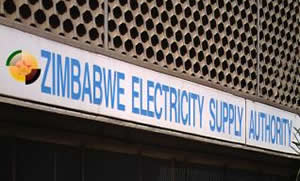Zesa tariffs go up 30pc

electricity tariffs with effect from February 1 this year.
Tariffs rose from 7,53 US cents per kilowatt hour to 9,94 USc.
In effect, this means domestic consumers who – for example – were being billed an average of US$30 per month, can now expect bills in the region of US$40.
New commercial tariffs will be announced today.
The new tariffs will not be applied retrospectively and bills will now be solely based on actual consumption.
The tariffs are generally in line with regional structures and are lower than those charged by South Africa’s Eskom, which bills at around 11 USc per kilowatt hour.
However, many people have defaulted paying their bills, saying the charges are already too high.
Last year, Zesa Holdings said consumers owed it around US$450 million, but the latest figures were not available yesterday.
Tariffs in the region are projected to increase by over 50 percent in the coming four years and Zimbabwe’s electricity is also likely to become more expensive, especially considering that the country imports some of its power from South Africa, Mozambique and the DRC.
In a statement yesterday, ZERC spokesperson Mr Peter Mufunda said: “The Zimbabwe Electricity Regulatory Commission, in exercising its mandate as provided for in the Electricity Act (Chapter 13:19) of 2002 Section 53, has approved electricity tariffs chargeable to consumers with effect from February 1, 2011.
“In the determination of the electricity tariff levels, the Commission noted the gains of the economy in 2010 over the momentum created in 2009, improved production levels, local tariffs compared to regional tariff levels, the state of local electricity supply infrastructure, as well as revenue requirements of the utilities.”
The move, Mr Mufunda said, was necessitated by the need to enable the power utility to recover operating costs and establish a path towards cost reflectivity.
“The utilities are expected to, among other things, henceforth, bill according to actual consumption not estimated.
“(Utilities should) introduce smart metering, where necessary, execute load-shedding fairly and according to load-shedding schedules.
“The commission will monitor operations of the utilities with expectation of improvement in service delivery and introduce stiff penalties where inefficiencies are observed as provided by the law,” Mr Mufunda said.
The commission urged consumers to pay their bills timeously and to take necessary initiatives to ensure they remain up to date with their bills.
Recently, the Minister of Energy and Power Development Elton Mangoma said the smart metering system would start next month.
He said the pre-paid system was meant to ensure that all consumers pay for power.
This, he noted, would result in less power cuts.
Consumers countrywide have been complaining of what they say is “uneven power distribution” by Zesa.
It is the public’s complaint that areas where Zesa bosses or the well-connected stay are spared from load-shedding while other residential areas are always without electricity.
They say electricity is cut off around 6am and only comes back late at night after they have gone to bed.
The use of estimates in billing was another issue among consumers as they felt they were being short-changed.
Last year, the Competition and Tariffs Commission orde-red Zesa to stop using estimations and to distribute power fairly.









Comments